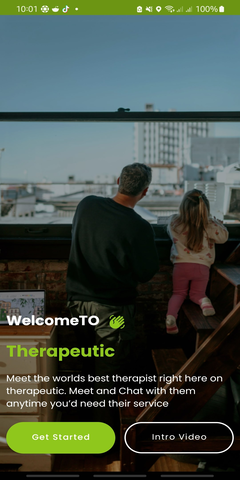PR-DC cordova-plugin-serialusb
Cordova plugin for Android Serial USB communication. This plugin makes a connection to the external board trivial, for example, you can connect an Arduino board to an Android device and get power, storage, a high-quality touch interface and many possible ways of connecting with the rest of the world (mobile network, WiFi, Bluetooth...).
Requirements
This library is tested with Cordova Android 9.1.0
Installation
From the root folder of your Cordova project, run:
cordova plugin add https://github.com/PR-DC/cordova-plugin-serialusb.git
Usage
Thanks to usb-serial-for-android library, you can communicate with CDC, FTDI, Arduino and other devices.
Copy device_filter.xml document to www/res/xml.
Append the following to the project's config.xml document within the Android platform-specific configuration.
<config-file parent="/manifest/application/activity[@android:name='MainActivity']" target="AndroidManifest.xml">
<intent-filter>
<action android:name="android.hardware.usb.action.USB_DEVICE_ATTACHED" />
</intent-filter>
<meta-data
android:name="android.hardware.usb.action.USB_DEVICE_ATTACHED"
android:resource="@xml/device_filter" />
</config-file>
<resource-file src="www/res/xml/device_filter.xml" target="app/src/main/res/xml/device_filter.xml" />
Append following preference to project's config.xml document.
<preference name="AndroidXEnabled" value="true" />
Now you can proceed with the app code, request permission to use the serial port to the system:
SerialUSB.requestPermission(function success(), function error());
After permission is granted you can open the serial port:
SerialUSB.open(opts, function success(), function error());
opts is a JSON object with the following properties:
- baudRate: defaults to 9600
- dataBits: defaults to 8
- stopBits: defaults to 1
- parity: defaults to 0
- dtr: defaults to false (it may be needed to be true for some Arduino)
- rts: defaults to false (it may be needed to be true for some modules)
- sleepOnPause: defaults to true. If false, the OTG port will remain open when the app goes to the background (or the screen turns off). Otherwise, the port automatically closes and resumes once the app is brought back to the foreground.
You're now able to read and write:
SerialUSB.write(data, function success(), function error());
SerialUSB.read(function success(buffer), function error());
data is the string representation to be written to the serial port. buffer is a JavaScript ArrayBuffer containing the data that was just read.
Apart from using SerialUSB.write(), you can also use SerialUSB.writeHex() to have an easy way to work with RS232 protocol driven hardware from your javascript by using hex-strings.
In a nutshell, SerialUSB.writeHex('ff') would write just a single byte where SerialUSB.write('ff') would let java write 2 bytes to the serial port.
Apart from that, SerialUSB.writeHex() works the same way as SerialUSB.write() does.
Register a callback that will be invoked when the driver reads incoming data from your serial device. The success callback function will receive an ArrayBuffer filled with the data read from serial:
SerialUSB.registerReadCallback(
function success(data){
var view = new Uint8Array(data);
console.log(view);
},
function error(){
new Error("Failed to register read callback");
});
Register a callback that will be invoked when the device is detached:
SerialUSB.detached(
function(success_message) {
}, function(err) {
console.log("Device detached!");
}
);
And finally, you can also close the port with:
SerialUSB.close(function success(), function error())
Example with Cordova app and Arduino sketch
An example of connecting Cordova application to Arduino board is available at: https://github.com/PR-DC/PRDC_TestSerialUSB
Change log
2021.12: Miloš Petrašinović: renamed to cordova-plugin-serialusb (SerialUSB as in Arduino) and implemented detached event.
2018.02: Dario Cavada: renamed to cordova-plugin-usbserial and refactory internal to follow cordova naming convention.
2015.10: Ed. Lafargue: Implemented "sleepOnPause" flag in the 'open' options to prevent closing the OTG port when app goes to background.
2014.08: Zevero: Option to find device by VID and PID, that let you use "unrecognized" devices.
2014.07: Hendrik Maus: Implemented writeHex for working with RS232 protocol, i.e. javascript can now pass "ff", java turns it into a 1 byte array and writes to the serial port - naturally, java, and the existing write method here, would create a 2 byte array from the input string.
2014.04: Derek K: Implemented registerReadCallback for evented reading and Android onPause/onResume
2014.03: Ed. Lafargue: Implemented read(). The success callback returns a Javascript ArrayBuffer which is the best way to handle binary data in Javascript. It is straightforward to convert this to a string if required - a utility function could be implemented in this plugin.
2013.11: Xavier Seignard: First implementation
License
The MIT License
Copyright (c) 2021 Miloš Petrašinović PR-DC. https://pr-dc.com
Copyright (c) 2015 Xavier Seignard. http://drangies.fr
Permission is hereby granted, free of charge, to any person obtaining a copy of this software and associated documentation files (the "Software"), to deal in the Software without restriction, including without limitation the rights to use, copy, modify, merge, publish, distribute, sublicense, and/or sell copies of the Software, and to permit persons to whom the Software is furnished to do so, subject to the following conditions:
The above copyright notice and this permission notice shall be included in all copies or substantial portions of the Software.
THE SOFTWARE IS PROVIDED "AS IS", WITHOUT WARRANTY OF ANY KIND, EXPRESS OR IMPLIED, INCLUDING BUT NOT LIMITED TO THE WARRANTIES OF MERCHANTABILITY, FITNESS FOR A PARTICULAR PURPOSE AND NONINFRINGEMENT. IN NO EVENT SHALL THE AUTHORS OR COPYRIGHT HOLDERS BE LIABLE FOR ANY CLAIM, DAMAGES OR OTHER LIABILITY, WHETHER IN AN ACTION OF CONTRACT, TORT OR OTHERWISE, ARISING FROM, OUT OF OR IN CONNECTION WITH THE SOFTWARE OR THE USE OR OTHER DEALINGS IN THE SOFTWARE.




![[UNMAINTAINED][Android] Bluetooth Serial Port Profile which comfortable to developer application to communication with microcontroller via bluetooth](https://raw.githubusercontent.com/akexorcist/Android-BluetoothSPPLibrary/master/image/header.png)


